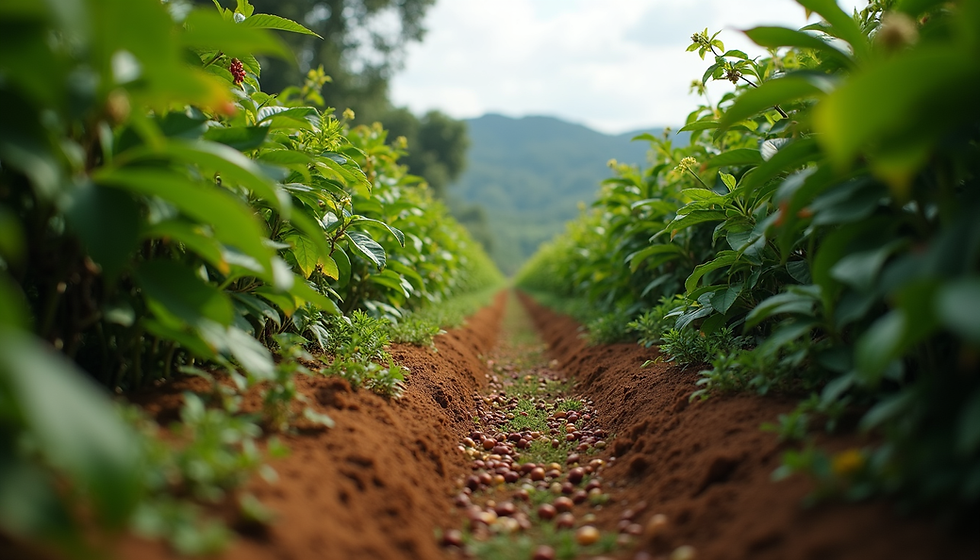The Coffee Supply Crisis: What Happens When Consumption Outpaces Production?
- Justin Cornelius
- Feb 10, 2025
- 2 min read
The global coffee industry is facing a growing challenge: consumer demand is outstripping production. With coffee consumption rising rapidly, particularly in emerging markets, and production struggling to keep up due to climate change, labor shortages, and supply chain disruptions, the industry is at a tipping point.
What’s Driving the Imbalance?
1. Rising Global Demand – More people are drinking coffee than ever before, especially in Asia, where markets like China and India are seeing exponential growth.
2. Climate Change – Unpredictable weather patterns, rising temperatures, and extreme conditions like droughts and frosts are reducing yields in key coffee-growing regions.
3. Labor and Economic Challenges – Coffee farming requires significant labor, yet many farmers face low wages, making it harder to sustain production.
4. Supply Chain Disruptions – Logistical issues, from shipping delays to political instability in producing countries, are adding to the strain.
What Are the Effects?
• Rising Prices – When demand exceeds supply, prices increase. Consumers may see higher costs for their daily coffee as raw bean prices surge.
• Supply Shortages & Quality Concerns – Farmers may struggle to meet demand, leading to lower-quality beans or blending lower-grade coffee into supply chains.
• Increased Pressure on Sustainability – Producers may resort to less sustainable farming practices to maximize yields, further harming the environment.
• Market Volatility – Coffee futures markets experience instability, impacting traders, roasters, and ultimately, consumers.
What Can Be Done?
• Investing in Climate-Resilient Coffee Farming – Research into drought-resistant and high-yield coffee varieties can help secure future production.
• Supporting Fair Trade & Ethical Sourcing – Ensuring farmers receive fair wages can improve sustainability and encourage continued production.
• Encouraging Sustainable Practices – Businesses and consumers can support initiatives like Eco Roast technology, which reduces waste in the coffee industry.
• Diversifying Coffee Origins – Exploring alternative coffee-growing regions can reduce reliance on traditional producing countries.
The Future of Coffee

If the imbalance between consumption and production continues, coffee could become more expensive and less accessible. However, by supporting sustainable solutions and ethical sourcing, we can help create a more resilient coffee industry that benefits both farmers and consumers.
At 918 Coffee Co., we are committed to sustainable roasting and reducing waste through innovative solutions like Eco Roast. By making conscious choices, we can all contribute to a future where coffee remains a staple of daily life without compromising the planet or the people who grow it.
How do you think the coffee industry should tackle this challenge? Let us know in the comments!




Comments